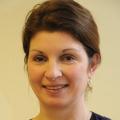
THE MP of a constituency where a third of children are living in poverty has said he was shocked to be told that in the outwardly prosperous area of Ryedale child poverty is so widespread.
The level of child poverty in Ryedale was among the subjects raised at a live broadcast of the BBC's Any Questions in Malton on Friday evening.
Around 200 members of the public had gathered at the Milton Rooms in Malton to take part in the debate.
A member of the audience asked what should be done about the fact that one in five children in Ryedale are living in poverty.
Dan Jarvis MP for Barnsley, who attended the event, said: "The level of child poverty in Ryedale is unacceptable.
"In my constituency of Barnsley a third of children are living in poverty but it comes as a shock to be told that in the outwardly prosperous area of Ryedale child poverty is so widespread. In one of the richest countries in the world it’s shameful that any child should grow up in poverty. I’m deeply concerned by the ever-rising numbers of families, right across Yorkshire, who are struggling to make ends meet. Poverty is not just a matter for urban areas, and the Government must do much more to support people living in rural areas with the particular challenges they face.
"The fact that child poverty affects so many in an area with a Conservative member of parliament highlights the hollowness of the government’s claims of levelling up."
The exposure of Boris Johnson earlier in the week for having lied to Parliament was one of the other topics discussed, along with devolution of power to North Yorkshire and the poor quality of public transport. There was support also for the Twenty is Plenty speed limit campaign.
Questioner Anne Seex said: "Rural and agricultural communities are facing multiple problems which are specific to them and different to but just as serious as the problems in urban areas." Mick Johnston Chair of Thirsk and Malton Labour Party, replied: "We believe this is true. It is high time the government recognised the seriousness of the problems facing rural communities and did something to address them."
Any Questions? was first broadcast in 1948 and over the years many figures of note have appeared as panellists. About 1.59 million people listen to the programme each week, with a live broadcast at 8 pm and a Saturday lunchtime repeat.
Normally, four to six audience questions are included in the broadcast and the panel, which is usually only announced on the night of the broadcast, never sees the questions in advance. The panellists hear them for the first time at the same moment the audience in the hall and at home does.



Comments: Our rules
We want our comments to be a lively and valuable part of our community - a place where readers can debate and engage with the most important local issues. The ability to comment on our stories is a privilege, not a right, however, and that privilege may be withdrawn if it is abused or misused.
Please report any comments that break our rules.
Read the rules here